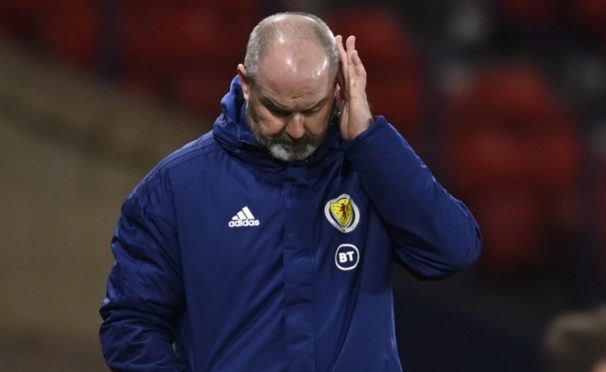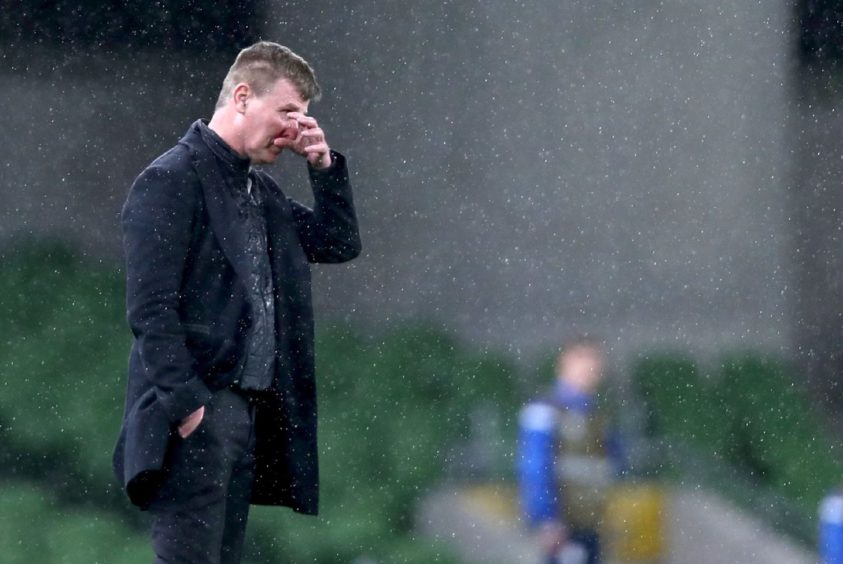
In dealings between sport and the media, one hand often washes the other.
The relationship between the pair is mutually beneficial. Access helps drive media sales, while coverage helps sport retain its huge popularity.
For the most part, both have a vested interest in keeping things rolling along.
It is why football managers, whose teams have just been gubbed, can find themselves asked if there are any positives they could take from the experience.
More entertaining are the rarer occasions when the star being questioned steps in to help the interviewer.
An example was Henrik Larsson’s calming of an excited broadcaster after Celtic’s UEFA Cup knock out of Blackburn Rovers in 2002-03.
Rovers had been England’s champions seven years earlier.
While they lost the first leg in Glasgow, their domination of play was such that their then manager, Graeme Souness, described it as “men against boys”.
Few expected them to lose at home to a Scottish team.
But the Swede did. And having scored home and away against a side who failed to find the net in 180 minutes, he then patiently explained in interview that Celtic’s success was no surprise to him.
Eight days ago, we saw a reversed version of the above when the Republic of Ireland crashed at home to Luxembourg.
With the Irish media thrown into funereal mode by the sheer horror of the result, it was left to Everton’s veteran defender, Seamus Coleman, to do the honourable thing by slaughtering his team’s performance.
It was impressive from the Republic’s captain, not least because Stephen Kenny’s record of zero wins from 10 games pointed the finger of blame in the manager’s direction.
The Irish media didn’t pass up the opportunity.
Back in Blighty, the thought of an international boss surviving such a sequence is incomprehensible.
Steve Clarke would not get anything like that time with Scotland. Were it to happen to England, there would be a public uprising.
The Three Lions’ current standing is almost certainly part of the reason why Kenny has been given time.
Gareth Southgate’s success in moving from England Under-21 coach to national manager has been much admired.
Several of the outstanding prospects he had under him have transitioned up to the “big team”.
The Republic had the example in mind when appointing Kenny.
They knew young talent had to be funnelled through to replace those who’d served their time in an international shirt.
Clarke’s situation was very different.
He had no previous experience at international level, but was hired to get Scotland back to a major finals, and duly delivered with success in the Nations League play-offs and securing a place in the Euros.
It is a measure of the joy that achievement brought to the nation that draws against Austria and Israel in the opening World Cup qualifiers left the Tartan Army with a feeling of anti-climax.
The euphoria of “Yes Sir, I Can Boogie” in Belgrade was quickly replaced on social media by the title of another disco classic: “Don’t Leave Me This Way”, with Clarke himself getting spiky with the line of questioning on Zoom calls and broadcast interviews.
The fans’ fear was part losing momentum at the wrong time with the Euros coming up, and part frustration because the dogs in the street can see the country have some great players just now.
Kieran Tierney is terrorising the Premier League with Arsenal, Scott McTominay is becoming an ever more-dominant presence for Manchester United, and Aston Villa’s John McGinn boasts a remarkable scoring record for a midfielder.
Chuck in Champions League and Premier League winner, Andy Robertson, the Ryans – Fraser, Christie and Jack (currently out injured) – and exciting new recruit Che Adams and Scotland have cause to be arrogant.
Clarke has already shown himself to be adept in putting together a team which has spirit and is hard to beat.
On Thursday night, the flair of the aforementioned was on show.
And while the critics will say we should be beating the Faroe Islands 4-0, results around Europe illustrated the gap between the minnows and the big fish is not always as big as it once was.
Just ask the Republic.
The question now is whether the national coach will be equally able to set up a side with the swagger to take it on to the Czechs, Croatia and England in the summer.
Belief and resilience has put Clarke’s team back onto the big stage. But there’s still a bit to go yet before we are all back singing from the same songsheet.

Enjoy the convenience of having The Sunday Post delivered as a digital ePaper straight to your smartphone, tablet or computer.
Subscribe for only £5.49 a month and enjoy all the benefits of the printed paper as a digital replica.
Subscribe © Tommy Dickson/INPHO/Shutterstock
© Tommy Dickson/INPHO/Shutterstock